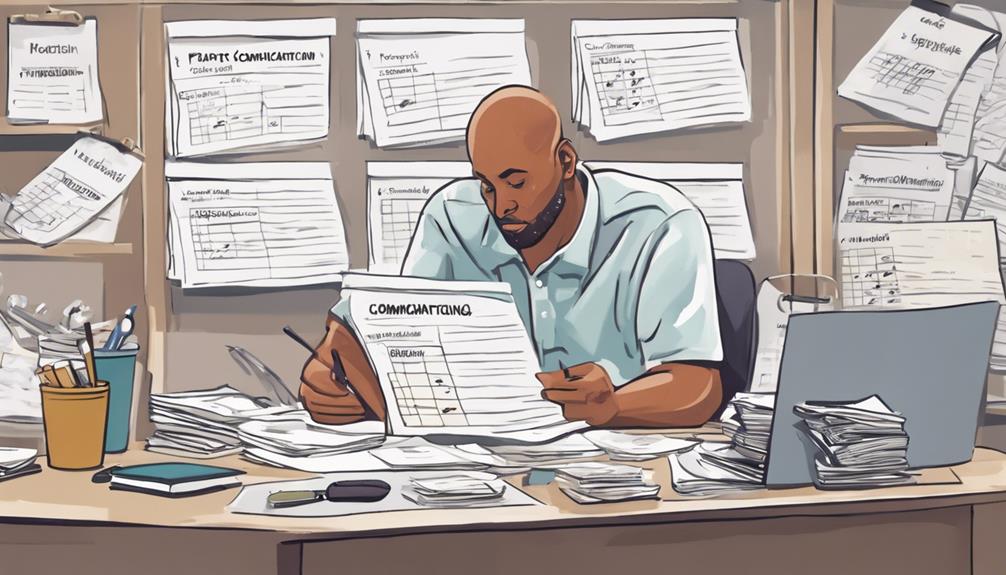If you feel emotionally distant, disconnected from your partner, or like conversation has become superficial, it may be time to contemplate divorce. Notice if intimacy feels gone or if attempts to reconnect are met with frustration. Watch for signs of manipulation, financial strain, or ongoing stress that hasn’t improved despite efforts. If these issues persist and your well-being suffers, it’s important to reflect deeply on whether ending the marriage might be the healthier choice. Learn more to guide your decision.
Key Takeaways
- Do I feel emotionally disconnected and lonely despite being with my partner?
- Are there ongoing signs of emotional manipulation or controlling behaviors affecting my well-being?
- Is financial strain causing persistent arguments, mistrust, or feelings of hopelessness?
- Has my overall sense of happiness and hope for the relationship significantly declined?
- Have my efforts to reconnect or improve finances failed, making me consider ending the marriage?

Have you ever wondered if your marriage has reached a breaking point? It’s a question many couples avoid confronting, but recognizing the signs early can save you from prolonged pain or unnecessary suffering. One of the most telling indicators is an emotional disconnect. If you find yourself feeling distant from your partner, no longer sharing your thoughts or feelings, it’s a red flag. When conversations become superficial or rare, and intimacy feels like a thing of the past, it’s a sign that your emotional bond is fraying. This disconnect often leads to feelings of loneliness even when you’re in the same room. If you notice that your attempts to reconnect are met with indifference or frustration, it’s worth considering whether this emotional gap can be bridged or if it signifies a deeper, unresolvable issue. Recognizing signs of emotional manipulation or gaslighting can also help you understand whether your partner’s behavior is contributing to this disconnect.
Financial strain is another vital factor that can strain a marriage to its breaking point. Money problems don’t just cause stress—they often amplify existing issues and create new ones. If you’re constantly arguing about expenses, debts, or financial priorities, it’s a sign that your marriage is under serious pressure. Money can become a source of shame, resentment, and helplessness, especially if one partner feels overwhelmed or if there’s a lack of transparency about finances. When financial worries dominate your life together, they can erode trust and mutual respect, making it difficult to work as a team. If you’re feeling increasingly hopeless about your financial situation or if money-related conflicts are hindering your happiness, it’s important to ask whether these issues can be resolved or if they’re a symptom of deeper incompatibilities. Recognizing financial stress as a potential warning sign can help you address underlying issues early. Sometimes, these financial issues are compounded by emotional manipulation or controlling behaviors that make resolution even more difficult. Additionally, persistent financial difficulties can lead to a sense of powerlessness that affects emotional well-being and the overall health of the relationship.
Beyond these specific signs, it’s essential to pay attention to your overall well-being. Do you dread coming home? Do you feel more alone with your partner than you do on your own? Are you considering divorce not just because of current problems but because you see no possibility for change? These are serious questions worth asking. Sometimes, the emotional disconnect and financial strain are symptoms of larger issues that can be addressed through counseling or open communication. But if, after honest reflection, you realize that efforts to reconnect or improve your financial situation have failed or are no longer realistic, it might be time to consider whether ending the marriage is the healthier choice for both of you. Recognizing these signs early can help you make a more informed decision about your future. Being aware of narcissistic behaviors or emotional manipulation can also help you understand whether your partner’s actions are contributing to these difficulties and if professional support is needed. Ultimately, trusting your instincts and seeking support from trusted friends, family, or professionals can make the path forward clearer.
Frequently Asked Questions
Can Therapy Salvage a Relationship That Shows Multiple Signs of Divorce?
You wonder if therapy can save a relationship showing multiple signs of divorce. While emotional resilience plays a key role, therapy effectiveness varies based on both partners’ commitment. If you’re willing to work through issues, therapy can help rebuild communication and trust. However, it’s essential to be honest about your needs and expectations. Sometimes, therapy provides clarity, but it’s not a guaranteed fix—your effort and resilience make all the difference.
How Do Financial Issues Influence the Decision to Divorce?
Imagine you and your partner constantly argue over spending disagreements, and financial strain worsens. These issues can make you question if staying together is worth the stress. Financial problems often cause tension, eroding trust and intimacy. When money conflicts dominate your relationship, it’s a sign that financial issues might influence your decision to divorce. Addressing these problems early can help, but unresolved financial strain can push couples apart permanently.
When Is the Right Time to Seek Legal Advice for Separation?
When should you seek legal advice for separation? You’ll want to do this when you feel emotionally ready and have considered your legal considerations. If you’re experiencing ongoing conflicts, financial concerns, or doubts about your next steps, it’s a good sign to consult a lawyer. Getting legal advice early helps safeguard your rights, clarify the process, and ensure you’re prepared emotionally and legally before making final decisions.
What Role Do Children Play in the Decision to Divorce?
Imagine your children’s worlds as delicate glass bubbles, easily shattered by parental conflict. You realize that your decision to divorce impacts their emotional stability and future happiness. You ask yourself if your actions prioritize their well-being and if staying together causes more harm than good. Ultimately, children play a vital role, as their parent impact shapes their development, guiding you to reflect on whether divorce truly serves their best interests.
How Can I Prepare Emotionally for Potential Divorce?
To prepare emotionally for potential divorce, focus on building emotional resilience by acknowledging your feelings and seeking support. Practice self-care strategies like exercise, meditation, and journaling to help manage stress. Stay connected with trusted friends or a therapist who can offer guidance and validation. By actively caring for yourself and developing resilience, you’ll be better equipped to navigate the emotional challenges that may come with this difficult *shift*.
Conclusion
Trust your instincts—if these signs resonate with you, it’s worth considering your happiness and well-being. Many believe that listening to your inner voice can guide you toward the right decision, even if it’s difficult. Remember, staying in a toxic or unfulfilling relationship can do more harm than good. Sometimes, ending a chapter is the key to finding peace and rediscovering yourself. Ultimately, only you can decide what’s best for your future.










